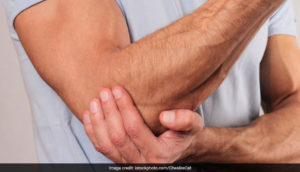10 contraceptive myths you should stop listening to;
2017-08-03
Falsehoods can get in the way of sound contraception advice
Contraception: we all use it. It’s an important part of our sexual and reproductive health – and yet it’s still one of the most misunderstood areas of our common healthcare. I’ve met several sensible adults who believe myths about how to avoid unwanted pregnancy and sexually transmitted infections. It’s time to set the record straight and separate the truth from the speculation…
1. The withdrawal method means you can’t get pregnant
This has to be one of the most common and widespread contraception myths. It’s easy to see why – in school we’re taught that the moment of ejaculation is the moment the sperm is released. That’s followed by a convenient story about the sperm meeting the egg and the magic of new life occurring. It’s a good story, but real life is a lot more messy and complicated than that. In reality, men often release small amounts of ejaculate (the fluid which contains sperm) before they climax. Withdrawing before climax will certainly reduce your chances of pregnancy, but it won’t eliminate them.
. The birth control pill makes you gain weight
There is lots of speculation out there about the way the pill impacts your metabolism and hunger levels. Like many myths, there is an element of truth here, but it’s still very misleading. Weight gain only happens if you eat too much for your needs. Hormones occasionally alter your appetite, which may mean you choose to eat more, but the pill doesn’t directly cause weight gain.
3. Being on the pill for a long time makes it harder to get pregnant
This idea has persisted for years. It is utterly false. It is in fact very likely to get pregnant as soon as you stop the pill. If it wasn’t true there wouldn’t be so many unexpected pregnancies from forgetting to start again after your seven-day break.
4. You have to take the pill at the same time every day
This is true for the older forms of the progesterone only mini-pill, but not the most common birth control pills that will be prescribed by your GP today. Although this is a myth, it’s actually quite a useful one – taking the pill at a regular time will help you remember and reduce the chances of missing a day, but the good news is, if you take the pill first thing in the morning, a couple of hours lie-in won’t stop it from working.
5. It’s a good idea to take a break in your birth control
Some people worry that taking the pill for too long could impact their reproductive health, so they take breaks whenever they can. The reality is that a pause in your use of the pill won’t really make much difference.
These days the hormones within birth control pills are at very low levels, so you can continue to take them for many years without problems. Taking a break in your birth control pills is only advisable if you are trying to get pregnant. A very common unexpected pregnancy story we hear is the one where you go off the pill because you’ve broken up; forgetting all of our propensity for making up unexpectedly with an ex.
6. You can’t get pregnant if you have sex during your period
It’s unlikely, but it’s far from impossible. Sperm can live inside the body for up to seven days and most women have fairly irregular cycles, so it’s hard to know exactly when the egg will be released. If you ovulate soon after your period, you could become pregnant. It’s very hard to predict the ‘safe’ times during your cycle.
8. Two condoms make sex safer
Condoms are 98% effective, but doubling up doesn’t double your odds. In actual fact, the two condoms will rub together and are actually more likely to split than a single condom.
9. The pill or IUD is all the protection I need
These are both fantastic methods of contraception, but they do nothing to protect you from sexually transmitted infection. If you’re on the pill and you’re seeing a range of partners, you should still use a condom. If you have one, regular partner, consider going for STI tests to make sure you are both negative. After that, it’s up to you.
10. I’m breastfeeding so I can’t get pregnant
New mothers often believe this common myth. It is true that breastfeeding tends to delay ovulation, making it less likely that you will conceive – but, unless you really want to risk adding to the family much sooner than you expect, don’t rely on it.
Deciding when to start a family is one of the most important decisions we will ever make, but frustratingly, when it comes to contraception, there seem to be a lot of myths in circulation. If you have concerns or need some concrete advice, don’t be afraid to consult your doctor. They can help you to separate the truths from the falsehoods.
Dr. Seth Rankin is founder of London Doctors Clinic







